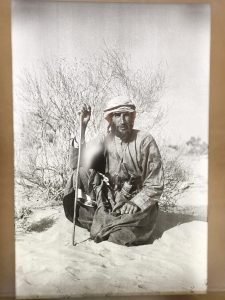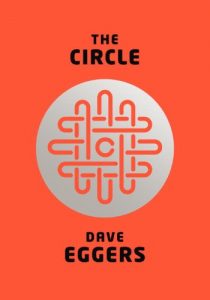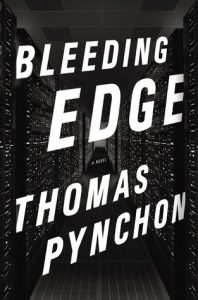Outer Dark
Cormac McCarty
Review By Dan Geddes
Cormac McCarthy’s Outer Dark draws from the long tradition of existentialist literature from Eccliesiastes to King Lear to The Stranger.[1] It creates a world devoid of God, purpose, causality; a world where mankind appears only semi-literate and half-animal. McCarthy creates this bleak world by weaving the themes of darkness, blindness, namelessness, sickness, and violence throughout his narrative. For McCarthy, creating this dark mood—echoing hell, Hades, Eliot’s Wasteland—is the primary purpose of the novel, and is strengthened by many allusions to Greek and Christian mythology. Despite the vivid realism of the surface descriptions, McCarthy’s world belongs to the imagination.
Outer Dark begins with the incestuous union of Culla and Rinthy Holme (whose names are slow to be revealed). They live in an isolated cabin, somehow subsisting on cornmeal and other low-grade fare. Rinthy goes into labor. Culla, ashamed of their incest, refuses to fetch a midwife, and instead leaves Rinthy to give birth by herself. He cuts the umbilical chord, and, unbeknownst to his unconscious sister, carries the baby into the woods, and leaves it there to die. The baby, however, is discovered by a wandering tinker. Rinthy eventually regains her strength and wants to know what became of their child.
Most of Outer Dark concerns Rinthy’s journey to find the child and Culla’s quest to find Rinthy. Both meet an assortment of bizarre characters. Both are destitute and subsist largely on the kindness of strangers. In a novel full of random occurrences and violence, it is notable that people are generally willing to share food, to make sure that others don’t go hungry. Nearly everyone she meets is willing to help Rinthy. Culla, too, manages to find some work, as well as people willing to give him food; on the other hand, he is often distrusted and bears the mark of Cain that he is a fugitive.
McCarthy’s dark tapestry is created from many interweaving themes including darkness and blindness, sickness, the futility of religion, and namelessness. These are illuminated by the wealth of biblical and classical allusion.
Darkness, with the related theme of blindness, is a recurring theme, from the “black sun” in Culla’s opening dream to the blind seer walking toward the garden of death on the last page. Culla’s dream (5) depicts a “delegation of human ruin who attended [the prophet] with blind eyes….The sun hung on the cusp of eclipse….[and soon] “begun to blacken.” Many of the novel’s key scenes occur at night: the abandonment of the baby, the sinking of the ferry, Culla’s two scenes with the mysterious trio. The word “shadow” is used relentlessly. When the squire is interrogating Culla we are told: “Their shadows canted upon the whitewashed brick of the kitchen shed in a pantomime of static violence in which the squire reeled backward and he leaned upon him in headlong assault.” (47) McCarthy’s darkness often takes on a spectral hue.
The blindness motif reinforces the theme of darkness in McCarthy’s depiction of the human condition. Aside from the literal blindness of the wandering seer at the novel’s end, McCarthy describes many characters’ eyes as plastic and unseeing. Rinthy is “pale and disheveled and with such doll’s eyes of painted china.” (24) The boy who wants to take her to a show is described as having “cadaverous eyes.” (60) The murderous trio’s black-bearded leader’s eyes are “shadowed lunettes with nothing there at all.” (171) The parson who condemns Culla after the hog herd’s melee “wore a pair of octagonal glasses on the one pane of which the late sun shone while a watery eye peered from the naked wire aperture of the other.” (221) Eventually the baby has one eye gouged out (“one eyeless and angry red socket like a stokehole to a brain in flames”) (232), creating a memorable image of being thrown into the world half blind. Culla encounters a blind man at the end of the book, who, though offering direction to others, is himself close to walking into a fatal swamp. The novel’s final sentence tells us: “Someone should tell a blind man before setting him out that way” (242)—setting him toward a “vulvate,” “garden of death,” “sucking” him in—probably symbolic of the this-worldly cycles of life and death.
In this bleak landscape, life forms often take on a sickly air. Culla’s opening dream—which introduces almost every theme discussed herein—depicts a “delegation of human ruin who attended him with blind eyes upturned and puckered stumps and leprous sores.” “Can I be cured?” he asks. Although the prophet thinks so, Culla is instead singled out for persecution in his dream. He fares little better in life.
The baby is “a beetcolored creature that looked to him like a skinned squirrel” (14) and had “an old man’s face” (15, 231). “It was naked and half coated with dust so that it seemed lightly furred.” (231)
Rinthy is a sick creature, rarely eating, and healing slowly. An early description has her “subsiding back among the covers like a wounded bird.” (11) Later on she “struggled toward him like a crippled marionette” (32) and combs her “dead yellow hair.” (53) In her travels through the desolate landscape she encounters a man whose “speckled hand had drawn up like two great dying spiders…” (107) Other characters are similarly malformed: “she could not have said to what sex belonged the stooped and hooded anthropoid that came muttering down the fence toward her.” (108)
Culla manages to endure a gunshot wound and fall from a high bluff without serious harm, but he too is suspected of being sick. After merely spitting out some chewed corn a man worriedly asks: “Cholera? Cholera?” (138) The man had lost all five of his children to sickness. From Culla’s first dream of the sick multitudes, and his early lie to the tinker (who suspects the pox) that his sister is ill, an atmosphere of sickness pervades the world of Outer Dark.
McCarthy uses mythological language in creating this Wasteland. At times he consciously pays tribute to Faulkner’s Southern Gothicism, but he has fashioned a distinct style for himself. After Culla abandons the baby in the woods, the land itself seems conscious of the evil deed:
Night fell long and cool through the woods about him and a spectral quietude set in. As if something were about that crickets and nightbirds held in dread….trees beginning to close him in, malign and baleful shapes that reared like enormous androids provoked at the alien insubstantiality of this flesh colliding among them.” (16-17)
The river is also described in hellish terms: “the swollen waters coming in a bloodcolored spume from about the wooden stanchions and fanning in the pool below with a constant and vicious hissing.” (15) It is not surprising to find echoes of Greek literature. The incestuous child left in the woods reminds us of Oedipus, and all the Fate that character represents. The ferryman recalls Charon, who carried the dead across the River Styx into Hades. McCarthy describes this river has “hissing blackly past the landing…[and it] seemed endowed with heavy reptillian life.” (160)
It is significant that the murderous trio—almost mythological themselves—are the first people Culla meets upon crossing that river. The blind man that Culla meets at the end, who offers prayers and help to whoever cross his path, reminds us of the blind prophet Tyresius, who foretold Oedipus’ unhappy fate.
Much of mythological feel comes from anthropomorphic descriptions. Nature itself is compared to man, and so we see words like “anthropoid,” “android,” “hominoid;” we are even told that (mythologically loaded) black mandrake will grow under the tinker’s hanging tree (238). Consider also the final passage:
Before him stretched a spectral waste out of which reared only the naked trees in attitudes of agony and dimly hominoid like figures in a landscape of the damned. A faintly smoking garden of the dead that tended away to the earth’s curve. He tried his foot in the mire before him and it rose in a vulvate welt claggy and sucking. He stepped back. A stale wind blew from this desolation and the marsh reeds and black ferns among which he clashed softly like things chained. He wondered why a road should come to such a place. (242)
Putting the capstone on this unhappy world is its everpresent atmosphere of violence, personified by three mysterious men described in short, italicized interchapters, beginning on the first page. Their violence is brutal, unjust, unmotivated, and random. They contribute to the impression that things in this world are erratic and irrational. It is tempting to view the three men as a mythological force—something like the Furies—but for McCarthy it is even more frightening to show that beings capable of such ferocity and cruelty are all-too-human: they eat (albeit human flesh, it is implied), speak, and want to wear better boots.
Yet the murderous trio seem tacked on as afterthought, and they probably weaken the novel’s effect. Culla and Rinthy wandering through the bleak South experience enough existential darkness and grotesquerie for one novel. The three men seem to follow a few steps behind Culla, killing many of the people he encounters: the baby and the tinker (though not until the end), the squire with the boots, the old snake-hunter who gives Culla water, two millhands (though we don’t whether Culla did indeed go to the mill to look for work as he intended), Clark (the wealthy merchant) and “two others.” In addition, Culla speaks extensively with both the ferryman and the pig herder, and they soon die accidentally. This series of bloodshed is too extensive to be strictly coincidental, but what does it mean? That life is “nasty, brutish, and short.” That Culla represents some dark or fatal force? That the three men represent such a force?
More likely, McCarthy first conceived the incestuous child and the droll vignettes with the Southern grotesques, and feared that without more action he did not have material enough even for a short novel. But McCarthy himself is not clear on what the three men represent, even if they represent randomness. They are deliberately left mysterious (“What are you?” Culla asks their leader and is not answered) and are only sparsely described: black beard with black suit, a man named Harmon, and a “nameless” one.[2]
The fact that so many people Culla encounters are killed or die is a way of toying with the reader, and of manufacturing motiveless action while hinting at its significance. Culla himself is neither murderer nor mysterious force; he is a survivor; and, insofar as a novel like Outer Dark can have one, the novel’s hero. There are simply too many gratuitous deaths if their only purpose is to create an atmosphere of darkness and terror. Eventually the reader’s empathy is exhausted and additional deaths simply do not matter. The death of one fully developed character is always more powerful than an extensive body count.
#
The use of darkness, blindness, sickness, mythological elements, and random violence all contribute to the novel’s effect— what I have termed “existentialist darkness.” These themes strongly suggest that McCarthy is writing more about the human condition than he is about one unhappy Southern family. Indeed, there is strong evidence that the baby’s experience in the novel is intended to parallel man’s experience in the world. This is best seen in the theme of namelessness.
The first mention of the baby is as the “nameless weight in her belly.”(5) [3] In trying to de-humanize the baby in order to rid himself of his guilt, Culla always refers to the baby as a nameless, genderless “it.” (25) Consider the scene in which Rinthy asks Culla to show him where he buried the baby.
Flowers, he said. It ain’t even got a name.…
We could give it one, she said.
It’s dead, he said. You don’t name things dead. (31)
Toward the end, when the three men and one-eyed baby sit around the fire:
What’s his name? the man said.
I don’t know.
He ain’t got nary’n.
No. I don’t reckon. I don’t know.
They say people in hell ain’t got names. But they had to be called somethin to get sent there.
Didn’t they.
The tinker might have named him.
It wasn’t his to name. Besides names die with the namers. A dead man’s dog ain’t got a name. (236)
Namelessness extends to other characters, including the tinker, the squire, the ferryman. Even the three murderous men are associated with namelessness. Only Harmon is named.
Everyone don’t need a name, does it? the man said.
I don’t know. I don’t reckon.
I guess you’d like to know mine wouldn’t ye?
I don’t care, Holme said.
I said I guess you’d like to know mine would’t ye?
Yes, Holme said.
The man’s teeth appeared and went away again as if he had smiled. Yes, he said. I expect they’s lots would like to know that. [4] (174)
The experience of living namelessly dovetails into a wider commentary on the futility of religion to address this plight. The baby abandoned on a tree stump in the cold night, may for McCarthy, be an apt metaphor for the way man is thrown into the godless world, without direction:
<p “longquote”=””>It howled execration upon the dim camarine world of its nativity wail on wail while he lay there gibbering with palsied jawhasps, his hands putting back the night like some witless paraclete beleaguered with all limbo’s clamor.
“Paraclete” and “limbo” are deliberately chosen words, echoing the religious impulse to cry to heaven for a justice that will not come. In light of the child’s ultimate fate (being devoured by one of the three men), it is implied that the child’s cries go largely unanswered.
The episode of the insane herd of swine—a reference to the story in Matthew 8:28-32 where Jesus casts out demons who beg to inhabit the body of swine who then run “down a steep place into the sea”—is one of many Biblical allusions in the novel. This scene in particular bursts with Biblical language. Culla hears “a faint murmurous droning portending multitudes, locusts, the advent of primitive armies.” (213) Ironically, the hogs are described as “mulefoots,” hogs that are ceremoniously clean because they do not have the split hoofs that make most pigs unclean according to Mosaic guidelines.(215) The herds are running on a bluff above “the gray serpentine of the river below.” When the hogs panic and begin leaping off the cliff, the drovers assume “satanic looks…as if they were not true swineherds but disciples of darkness got among these charges to herd them to their doom.” (218) Unlike Jesus casting out the demons into the hogs, in McCarthy’s scene, the hogs command the situation. One of the herders is described in a manner recalling a crucifixion: “One of the drovers passed curiously erect as though braced with a stick and rotating slowly with his arms outstretched in the manner of a dancing sleeper.” (218)
Like other existentialist writers who utilize biblical allusions, McCarthy’s are meant to highlight God’s absence in the world.[5] Prayers, such as those of the blind man unknowingly headed for the swamp, are in vain. When Rinthy discovers that Culla never buried the baby, he flees “bearing his clenched hands above him threatful, supplicant, to the mute and windy heavens.” (33) The word “christian” is left uncapitalized. Frequent examples show religion in the world of Outer Dark to be repressive at best. When Culla is wrongly accused of failing to prevent a wayward shepherd from falling off a cliff, the preacher, although nominally liberal and non-violent, approves of hanging him, mainly because of his unkempt appearance and foul mouth. Apparently is it religion that shames Culla into disposing of the newborn child, in order to hide his incest. Sabbath remembrance even keeps Culla from buying food at the general store when he and Rinthy are out of food. In general, religion’s role in this world is a pathetic attempt to keep despair at bay.
#
McCarthy shows a mastery of style in Outer Dark. He writes memorable descriptions, and creates vivid scenes. For all its darkness Outer Dark is a very readable work. Yet one wonders what would be the result of McCarthy applying his talent to the creation of a beautiful work, rather than something merely dark and haunting. He need not compromise his dark vision—beautiful tragedies have been written—but Outer Dark is ruthlessly cynical. In it is nothing to inspire us; nothing to emulate; no fallen greatness. Nor do we learn what emotions and actions to avoid. We seem doomed from birth.
Great art need not teach us if it possesses surpassing aesthetic power. Outer Dark does not; it is less ambitious. It effectively creates a mood.
[1] “Existentialism” is loaded term, no longer in vogue. I use it to describe Outer Dark in its literal sense, defined by Sartre: existence precedes essence: man is thrown into a meaningless world rather than a world fashioned by a God who provides readymade meaning, value, morality, etc. Thus, man must make meaning.
[2] Are they an unholy Trinity? In a novel that affirms the this-worldliness of dark impulses, what would that even mean?
[3] The French philosopher Jacques Lacan once wrote that the power of language over our lives can best be seen by the fact that we ourselves are named before we have any command of language.
[4] Those seeking evidence that the three men are an unholy trinity will recall that in the Hebrew Bible Yahweh is not to be known by his true name, only by the Tetragrammaton and other names.
[5] It is debatable whether this is an effective novelistic tactic. Why keep referring to Christian mythology—even negatively—if you feel it serves mankind poorly?









By any chance can you review some of McCarthy’s other novels? This is the seventh book I read by him and it’s my least favorite so far. Having said that I appreciate his novel much more after having read your review, it is nothing short of exceptional. I would be interested to hear your thoughts on Child of God, Blood Meridian or Suttree.